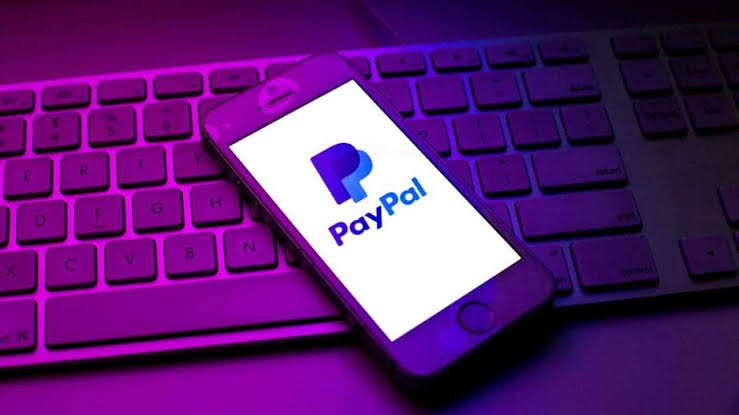PayPal has launched a new peer-to-peer service called “Links,” enabling users to send and receive money through personalized, one-time links that can be shared in any conversation. The innovation represents a major step in PayPal’s broader effort to simplify money movement across borders, currencies, and digital platforms.
Initially available to users in the United States starting September 15, 2025, Paypal p2p “Links” will expand later this month to the UK, Italy, and other international markets. According to the company, the feature is designed to attract new customers and enhance engagement within its ecosystem of nearly 200 markets.
“Paypal p2p is evolving to match how people connect today,” said Diego Scotti, General Manager of PayPal’s Consumer Group, in a company statement. “Whether you’re texting, messaging, or emailing, your money now follows your conversations.”
Crypto integration coming soon
In a notable update, PayPal confirmed that cryptocurrencies will be directly integrated into the Paypal p2p payment flow. This will allow users in the U.S. to send and receive Bitcoin (BTC), Ethereum (ETH), and PayPal USD (PYUSD), alongside traditional currencies.
The company emphasized that crypto transfers will not be limited to PayPal and Venmo. Instead, they will extend to a growing number of digital wallets worldwide that already support stablecoins and crypto assets.
“Paypal p2p with crypto integration is a logical extension of our strategy,” said a PayPal spokesperson. “By combining fiat and digital currencies in one seamless experience, we are setting a new standard for peer-to-peer payments.”
A legacy of digital payments innovation
PayPal’s latest move builds on its history of introducing crypto and digital-first features. Since 2020, the company has gradually rolled out services for buying, selling, and holding cryptocurrencies. In 2021, it enabled “Checkout with Crypto” and added crypto to Venmo. By 2022, it had opened external wallet transfers, followed in 2023 by the launch of PYUSD, a regulated U.S. dollar–backed stablecoin.
Analysts see Paypal p2p “Links” as the next stage in this progression. “By embedding crypto into Paypal p2p, PayPal is demonstrating its long-term bet that digital assets will become mainstream in everyday transactions,” said Karen McCarthy, fintech analyst at Javelin Strategy & Research.
User protection and compliance
PayPal also addressed regulatory concerns around personal payments. The company reaffirmed that friends-and-family transfers through PayPal and Venmo remain exempt from 1099-K tax reporting. Gifts, reimbursements, and expense-splitting will not generate tax forms, reinforcing privacy and compliance safeguards.
Industry observers note that this assurance may help boost adoption. “Many consumers hesitate to use Paypal p2p for informal payments due to tax concerns,” said McCarthy. “Clarifying that these remain exempt is crucial for trust and growth.”
Meanwhile, PYUSD—PayPal’s stablecoin—continues to operate under Paxos Trust Company’s oversight, ensuring full reserves in U.S. dollar deposits and Treasuries. This regulatory framework is seen as a key differentiator for PayPal compared with competitors in the peer-to-peer space.
Competitive positioning and market momentum
The Paypal p2p business remains central to PayPal’s consumer engagement strategy. In the second quarter of 2025, peer-to-peer and other consumer payment volumes grew 10% year-over-year. Venmo, a cornerstone of PayPal’s P2P ecosystem, recorded its highest growth in three years.
Analysts suggest that the combination of PayPal World—a new interoperability platform unveiled earlier this year—and Paypal p2p “Links” could extend PayPal’s reach to billions of wallets worldwide.
“Paypal p2p is no longer just about moving dollars between PayPal accounts,” said Rajesh Nair, global payments strategist at Deloitte. “It’s about building a network effect that spans fiat, crypto, and digital wallets across continents.”
Looking forward
As PayPal enters its 25th year, the company is betting that Paypal p2p will define the next era of consumer finance. By marrying the simplicity of personalized payment links with the versatility of crypto transfers, PayPal aims to position itself as the default choice for global, cross-platform money movement.
“For 25 years, PayPal has revolutionized how money moves between people,” Scotti said. “Now we’re taking the next major step, making it effortless to pay your friends and family no matter where they are or what app they’re using.”
PayPal Ushers in a New Era of Peer-to-Peer Payments, Reimagining How Money Moves to Anyone, Anywhere. Send and receive money as easily as sending a text, across apps, borders, and currencies
With crypto support and international expansion on the horizon, Paypal p2p “Links” could reshape how money flows in an increasingly interconnected economy.











